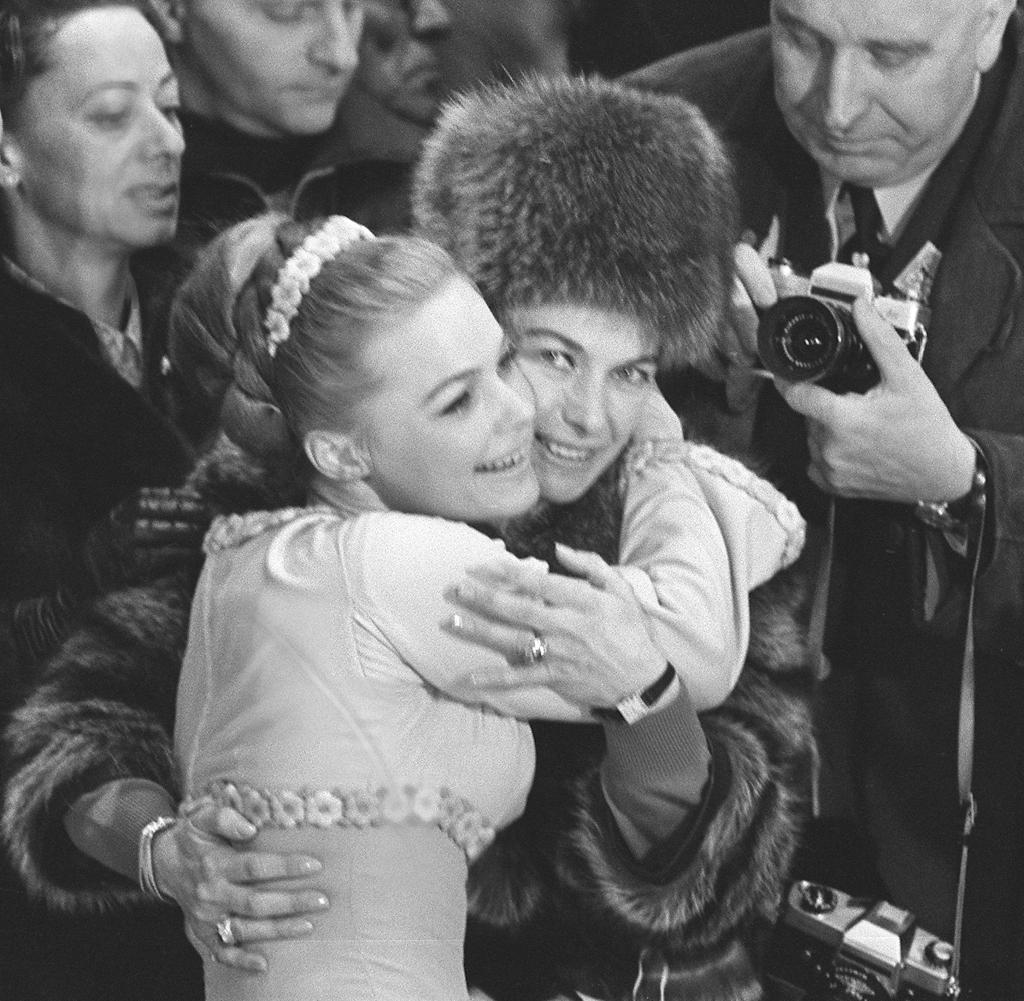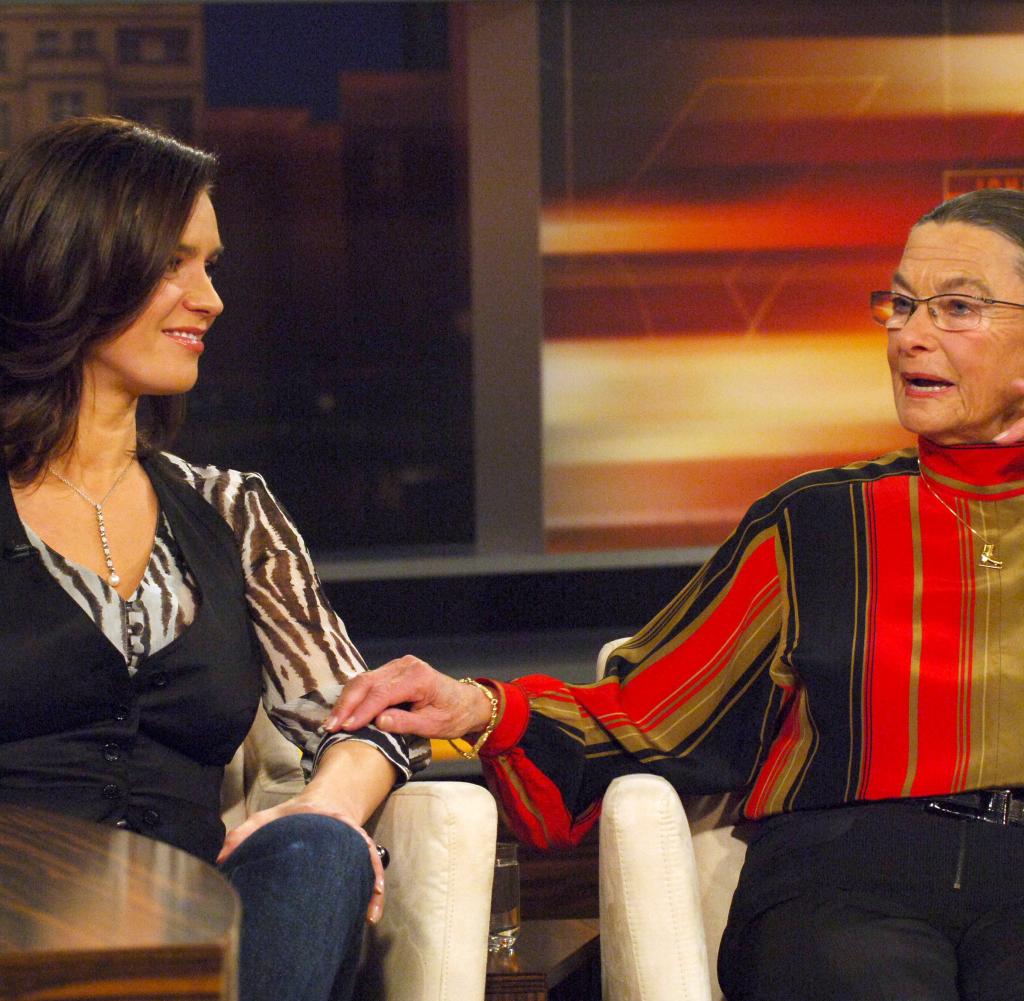Iconic trainer Jutta Müller is dead
Figure skating icon Jutta Müller dies
For decades, Jutta Müller led a strict regime and won 57 international medals with her protégés. Her most famous student was Kati Witt. Müller died at the age of 94.
Figure skating idol Katarina Witt and the sports world mourn the loss of former coach Jutta Müller. The woman from Chemnitz died at the age of 94. In addition to Witt, the “Iron Lady” of figure skating had also brought other athletes to the top in the world.
IIn GDR sports, Jutta Müller was one of the most dazzling and successful trainers. The “Iron Lady” of figure skating celebrated her successes in arenas around the world wearing a fur coat alongside her skating greats Katarina Witt, Anett Pötzsch, Jan Hoffmann and her daughter Gaby Seyfert. Jutta Müller’s unique record is 57 medals at the European Championships, World Championships and Olympic Games.
At the age of 94, she died on Thursday in a nursing home near Berlin. Her daughter confirmed this to the German Press Agency. The MDR had previously reported on it. “With her, the figure skating world is losing one of the greatest coaching personalities and is shocked by her death,” said Andreas Wagner, President of the German Ice Skating Union.
“She recognized talent and was driven not to waste it,” Witt once said of her strict and authoritarian coach. “There was certainly a lot of her own ambition there. But just so that she felt responsible for getting the best out of it together with the athlete.” She was a passionate coach who “actually only thought about figure skating and left nothing to chance.”
Figure skating coach Jutta Müller (l.) at the 1984 Olympic Games in Sarajevo with Katarina Witt
Source: picture alliance/dpa/Wolfgang Thieme
Witt watched over her teacher until the end, even though she was always a close reference person for her. “Everyone asks us, ‘You still say she?’ Yes, I always will! For me, Ms. Müller is always Ms. Müller. Out of respect! And yet she is very close to me,” Witt said on the coach’s 90th birthday.
“I asked for a lot and gave a lot”
Jutta Müller, who was born in Chemnitz, led Witt to Olympic victories in 1984 and 1988, as did Anett Pötzsch in 1980. She also won Olympic silver and titles at the European and World Championships with her daughter Gaby Seyfert and Jan Hoffmann. “Without her I would never have achieved this world career,” said Witt.
“I asked for a lot and gave a lot,” Müller, who began her coaching career at SC Karl-Marx-Stadt in 1955, once said. “I took care of everything. We were a unit.” Witt was strong enough to grow as a personality alongside the always elegantly dressed trainer with the black bun. Gaby Seyfert found it more difficult. She didn’t always feel comfortable in the role of daughter alongside the strong coach of the century.
Gabi Seyffert and her mother Jutta Müller hug each other when victory is certain at the 1969 European Championships
Source: picture-alliance/Sven Simon/SVEN SIMON
“She embodied these successes of the GDR, she knew how to produce success,” said Udo Dönsdorf, former DEU sports director, about Jutta Müller. “And the GDR system was made for her and offered her every opportunity because figure skating had a dazzling touch.”
She also helped Alyona Savchenko
Jutta Müller herself became the GDR champion in pair skating. The city of Chemnitz made her an honorary citizen, and in 2004 she was inducted into the figure skaters’ hall of fame. Even after her coaching career ended, she was still drawn to the hall of the Chemnitz ice skating club, the former SC Karl-Marx-Stadt.
The five-time pair skating world champions Alyona Savtschenko and Robin Szolkowy, whom she often visited during training, were particularly close to her heart. And when Savtschenko had problems with the triple salchow, it was Müller who gave her advice.
After reunification, Müller, who was perceived as very close to the SED regime, was no longer in the spotlight. The former teacher of German, music, mathematics and sports joined the party in 1946. “The GDR system could not be taken over. I realize that now. But it could have continued anyway. At the time, I was actually desperate that all this super-young talent work could no longer exist overnight,” Jutta Müller later told the “Frankfurter Allgemeine Zeitung”.
Always kept in touch: Katarina Witt (l.) and her trainer Jutta Müller in 2007 during the recording of the television program “Johannes B. Kerner”
Source: picture-alliance/dpa/Wolfgang Langenstrassen



